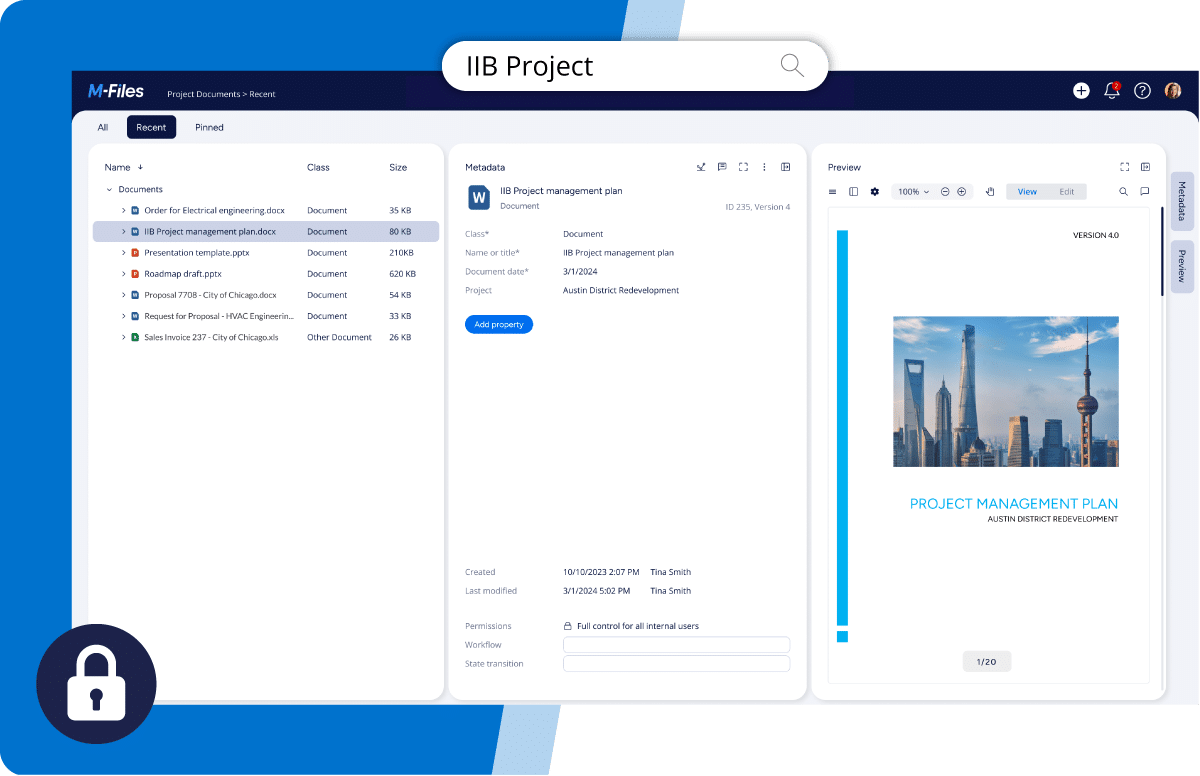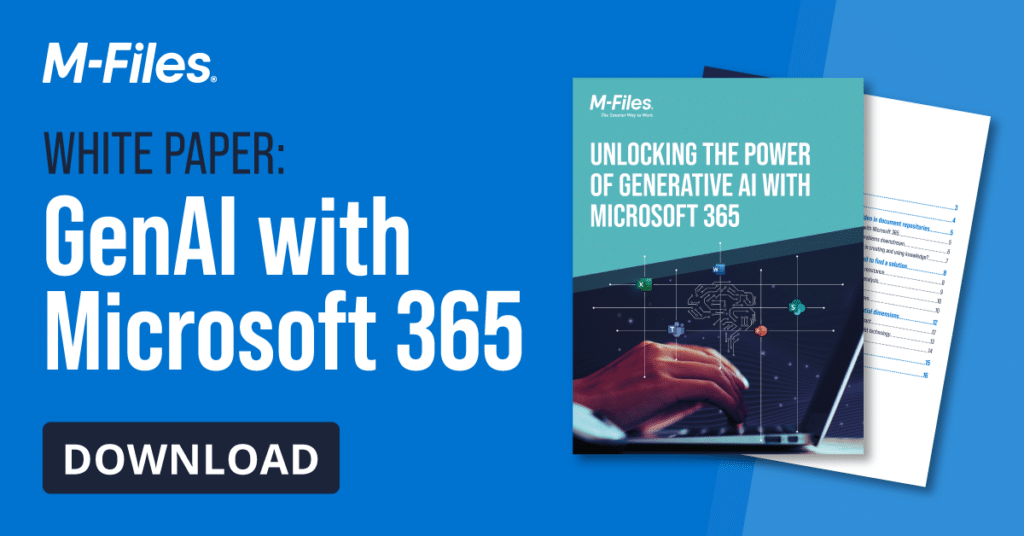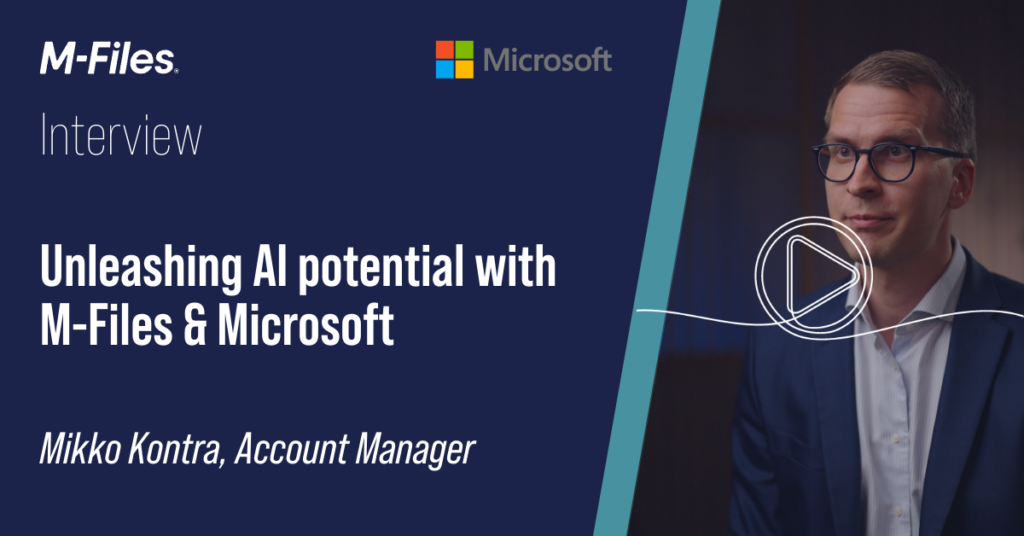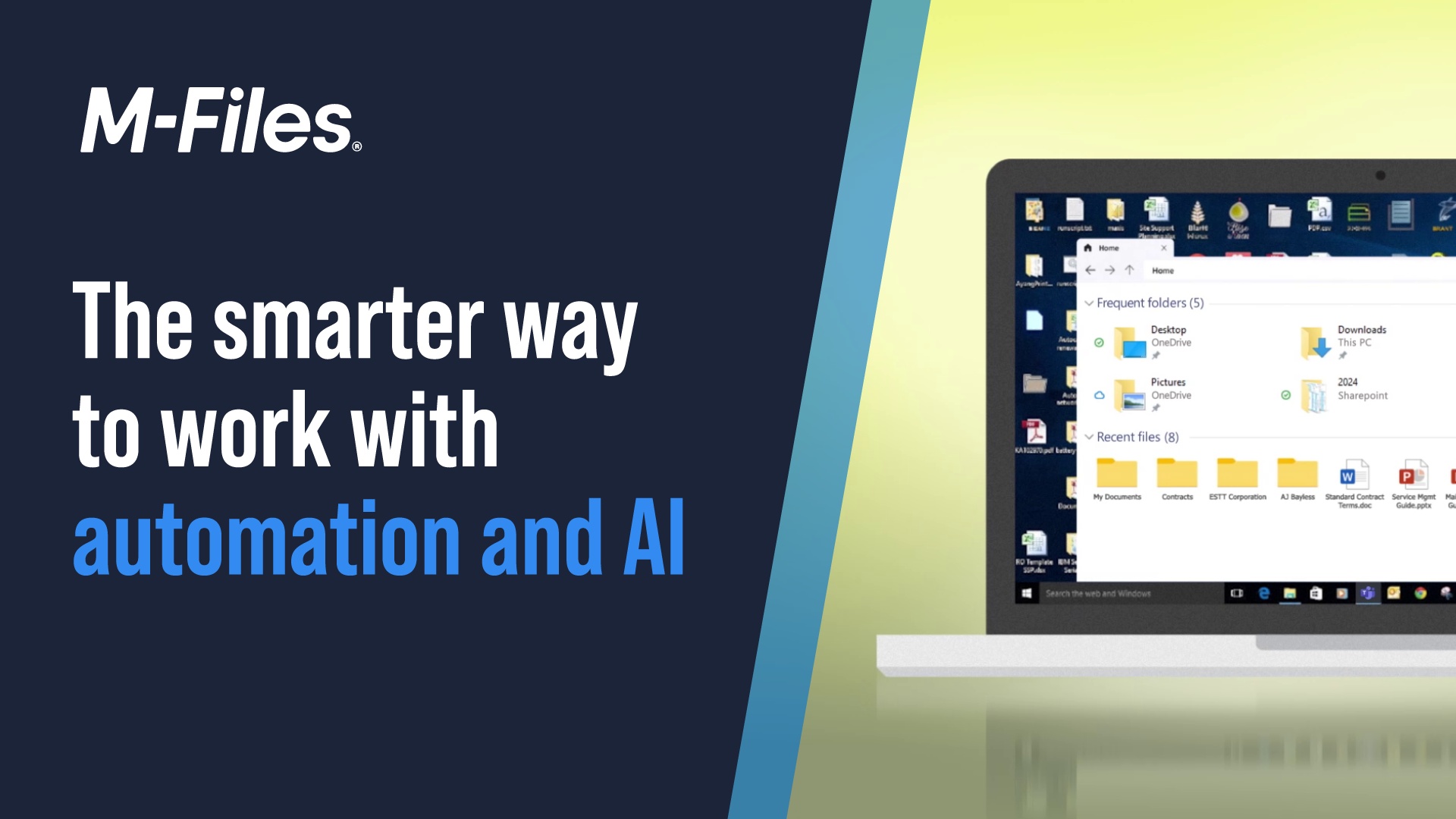Enterprise Data Management
Improve Performance with Better Enterprise Data Management
Information is at the heart of business today. It’s difficult to think of any business practice or operation that doesn’t rely extensively on data and documents. In this reality, one would expect businesses to place the highest priority on superior information management systems.
Yet for many organizations, poor enterprise data management practices are hindering productivity and creating significant costs in time and money. Employees are often unable to find the documents they need and may spend hours each day in fruitless searches or re-creating documents that have been lost. Emailing documents back and forth as attachments inevitably creates headaches with version control. And even the most basic document workflow of getting a document reviewed, approved and signed can take far too long.
M-Files can help. As a next-generation intelligent information management platform, M-Files makes it easy for users to find, access and share documents while also automating document workflows and keeping information secured and controlled.


A Smarter Way to Work with Data
See how M-Files connects you with the right data, at the right time, for the right person.
The Obstacles to Effective Data Management
When choosing a document management or enterprise content management (ECM) system, organizations must focus on solutions that can address the critical challenges to enterprise data management.

M-Files: Intelligent Enterprise Data Management
The M-Files platform offers intelligent solutions that solve the challenges of enterprise data management. In contrast to traditional file management or records management technology, M-Files doesn’t require documents to be migrated to a central depository. Instead, M-Files’ AI-powered technology crawls existing repositories, systems and platforms to identify and analyze documents, tagging them with metadata that makes them easy to find in seconds.
By creating connections to documents rather than moving them to a central location, M-Files effectively breaks down information silos to deliver an in-context experience for accessing and leveraging content in any system or repository. Files and documents can remain wherever they currently live – in network folders, SharePoint, ECM systems, CRM platforms or other business systems and archives.
This unique approach – managing files based on what a document is rather than where it is located – means that workers no longer need to remember where something was stored. They can simply type in a few words about what they’re looking for into the M-Files search bar and get connected to their documents in seconds. Metadata in every document identifies information about what the document contains, who created it, who needs to see it next and other important and relevant information. Consequently, M-Files can provide a full picture of all the documents related to any topic – for example, all documents for a given project, all correspondence with the customer or all contracts expiring this month.
How M-Files Gives You Control of Your Data
In addition to providing faster, easier access to your information, M-Files enterprise document management gives you greater control over your documents as well.
Enhance Efficiency with Workflow Automation
M-Files workflow automation capabilities put an end to error-prone manual processes while improving efficiency and freeing workers to focus on more high-value tasks. Using a file’s metadata, M-Files guides documents through workflows, routing the file to the right people in the right order and ensuring that tasks are completed correctly and on time.
M-Files automatically contacts individuals and issues follow-ups when action is required on a document. The document’s metadata is updated as it moves through the workflow. M-Files enables process managers to view the progress on each step, allowing them to take action to eliminate performance bottlenecks that cost time and money.
The M-Files Workflow engine makes it easy to customize workflows for documents, employees and projects to suit the needs of an organization.









